If drinking 2 liters of water is the required water intake daily, you might have wondered how long it takes to pee after drinking water. The average time it takes to pee depends on several factors.
In this article, you’ll read about how long it takes to pee after drinking water, how much you should pee every day, what can make you pee often, and other important things you need to know about this topic.
Let’s dive in.
- How Long Does It Take To Pee After Drinking Water?
- How Long Does It Take To Pee After Drinking A Liter Of Water?
- How Long Does It Take To Pee After Drinking 3 Cups Of Water?
- How Long Does It Take For 8 oz Of Water To Reach The Bladder?
- How Much Urine Can Your Bladder Hold?
- How Long Does It Take For Water To Become Urine?
- How Much You Should Pee Every Day?
- What Can Make You Pee More Often?
- How To Make Yourself Pee Fast After Drinking Water
- Drinking A Lot Of Water But Not Peeing
- How To Stop Peeing So Much When Drinking Water
- When To Stop Drinking Water To Avoid Peeing At Night
- Related Questions
- Final Thoughts On How Long Does It Take To Pee After Drinking Water
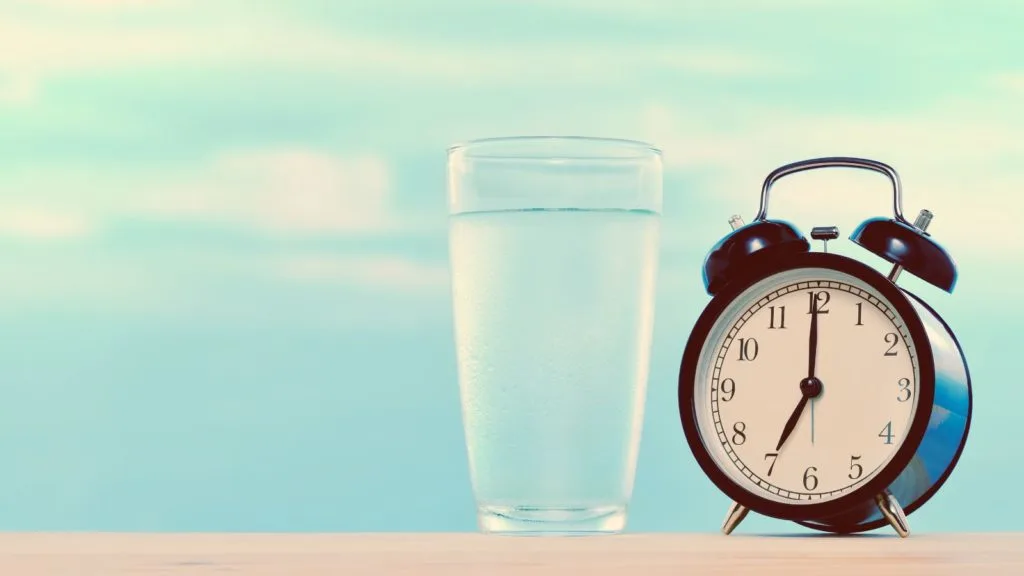
How Long Does It Take To Pee After Drinking Water?
After drinking water, it takes about 5 minutes for your body to absorb it. Excess water mainly leaves your body through urination, as well as feces and sweating. How long it takes to pee after drinking water depends on how much water you drink and how full your bladder is when you drink it. If you have a full urinary bladder peeing after you drink water may take between ten to fifteen minutes. If your bladder is empty, it can take one to two hours, and if you’re dehydrated, it can take nine to ten hours after consuming a glass of water before you feel the need to pee.
When you drink plenty of water, your kidneys work to get all the excess liquid out of your body and into your bladder. The length of time it takes to pee will depend on several factors, like the amount of water already in your body and your kidney function.
A Table That Shows How Long It Takes To Pee After Drinking
| Age | Ave Bladder Size (Ounces) | Time To Fill (Hours) |
|---|---|---|
| Infant (0 - 12 months) | 1 - 2 | 1 |
| Toddler(1 - 3 years) | 3 - 5 | 2 |
| Child (4 - 12 year) | 7 - 14 | 2 - 4 |
| Adult | 16 - 24 | 8 - 9 (2 per hour) |
How Long Does It Take To Pee After Drinking A Liter Of Water?
The time it takes to urinate after drinking a liter of water can vary from person to person. On average, it may take around 30 minutes to 1 hour for the body to process and eliminate the water as urine.
However, this can be influenced by several factors, including individual metabolism, bladder capacity, and overall hydration level. Additionally, if you have recently emptied your bladder before drinking the liter of water, it may take longer for the bladder to fill up and trigger the need to urinate.
How Long Does It Take To Pee After Drinking 3 Cups Of Water?
3 cups of water is 750ml, which is close to a liter and therefore the time it takes to drink 3 cups of water will be similar to how it takes to pee after drinking a liter of water.
If your bladder is full you might need to urinate quite quickly after drinking 3 cups of water – about 10 to 15 minutes. If your bladder is empty or you’re dehydrated it can take about an hour before you will need to use the bathroom.
How Long Does It Take For 8 oz Of Water To Reach The Bladder?
How long it takes for water to reach the bladder depends on the individual. On average, 8 ounces (236 ml or 1 cup) of water may take between 30 minutes to 1 hour to get to your bladder.
As soon as you drink water, it travels through the stomach and enters the small intestine, where it is absorbed into the bloodstream.
The urine is then filtered and produced in the kidneys, where it is then collected in the bladder and discarded when you pee.
The speed at which water is processed and reaches the bladder is affected by individual factors, such as metabolism, hydration level, and overall health. In addition, the presence of other substances in the digestive system or certain medical conditions can also influence the process.
How Much Urine Can Your Bladder Hold?
A healthy urinary bladder can hold up to 500ml (about 2 cups) of urine in women and 700 ml in men. However, you can start to feel the need to pee when your bladder has stored between 200ml and 350 ml of urine.
How Long Does It Take For Water To Become Urine?
The process of water becoming urine involves several steps in the body. Once consumed, it takes some time for water to go through your system to pee. Water is absorbed into the bloodstream through the walls of the stomach and small intestine after entering the digestive system.
A lot of people wonder “how long does it take for water to digest?” or “how is water digested?”. In contrast to eating food, water is absorbed into the bloodstream instead of being digested. The absorption process occurs in the stomach.
Water will then travel to cells across the body, providing them with the hydration they need to perform their daily functions effectively. Once the body has all of the water it needs to function efficiently, it then begins the process of removing excess water. Water is then transported to the kidneys via the circulatory system.
During the filtration process in the kidneys, waste products, excess water, and electrolytes are removed from the bloodstream. Nephrons, which are the kidney’s functional units, carry out this filtration process.
After filtration, urine is collected in the renal pelvis and travels through the ureters to the bladder, where it is stored until it is eventually expelled through the urethra.
There are several factors that can influence how long it takes water to become urine, including the individual’s metabolism, hydration level, and other physiological factors.
If you’re dehydrated, the water will be absorbed by your body and used to maintain vital functions before it eventually reaches your kidneys to eliminate toxins. In general, it takes 30 minutes to 1 hour for water to go through your system to pee.
How Much You Should Pee Every Day?
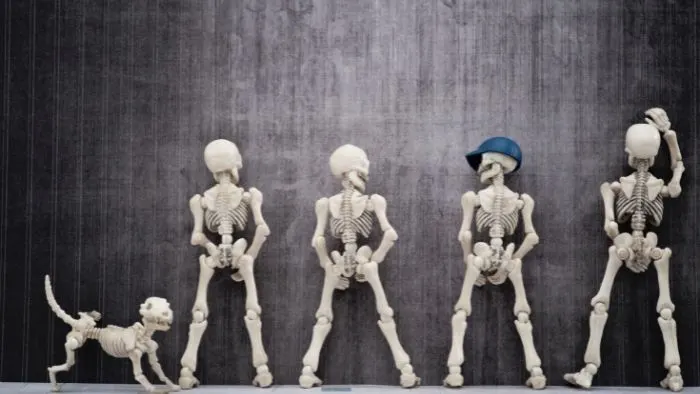
Most people pee between six and eight times per day, with the average being seven times within twenty-four hours. It can also be normal for a healthy person to pee between four and ten times a day if you drink a lot of water. Urinating only once or twice a day probably means that you’re dehydrated and need to drink more.
The volume of urine normal adults pee out will vary from around 250 to 400mls. The urine volume passed each time depends on the time of day (mornings will be more), how much water you’ve drunk, and how full your bladder is.
Why do I pee so much when I drink water?
Your body is very good at regulating how much water is absorbed and released from the body. If you drink plenty of water, your kidneys will get rid of the water that your body does not need.
If you drink juice, your body needs to store the sugar (glucose) within your muscles and the liver. Your liver needs about four units of water for every unit of mass glycogen it stores. So if you drink a fruit juice that has 20g of sugar, your body will need another 80g of water to store both. This means that you’ll only pee out 100g of the 200g of juice you drank. When you drink plain water, your body can potentially pee it all out if it’s not needed for anything else in the body.
Why do I pee immediately after drinking water?
If you pee immediately after drinking water, then your bladder was probably already full. It can also result from urge incontinence, a feeling or process that occurs when an overactive bladder contracts or spasms at the wrong time. Often, this might cause you to pee or leak urine when you drink a little water even though your bladder is not full.
How long does it take for water to reach the bladder?
The time it takes for water to get to the bladder can vary depending on factors such as the individual’s hydration level, metabolism, and other physiological factors. Generally, after drinking water, it can take around 30 minutes to 2 hours for it to reach the bladder.
After ingestion, water is absorbed into the bloodstream through the walls of the stomach and small intestine. It then enters the circulatory system, where it is transported throughout the body. Eventually, the kidneys filter the blood and produce urine, which is stored in the bladder until it is eliminated from the body.
The exact time it takes for water to reach the bladder can be influenced by the rate of absorption, which depends on factors like the volume of water consumed, the presence of other substances in the digestive system, and individual variations. Additionally, factors such as diuretics or certain medical conditions may affect the process.
Your body can absorb water as quickly as five minutes after you have ingested it. You might need to pee in about ten to twenty minutes after drinking water if your bladder is full and one to two hours if your bladder is empty. Your kidneys constantly produce urine, so your body quickly removes excess liquid through urine.
Does drinking water make you pee faster?
Drinking a lot of water can trigger your body to urinate. A low-sugar liquid can also assist you if you need to urinate quickly for a specific reason (i.e. at a doctor’s office). You may, however, need to drink several sips before you try to pee so that you can get this technique to work. Although drinking alcohol and coffee have a diuretic effect, it is not healthy as it may cause dehydration.
What is the average pee time in seconds?
The average pee time is about twenty-one seconds. Everyone, irrespective of body size, stature, and age, experiences an average pee time of twenty-one seconds, according to studies carried out by researchers at the Georgia Institute of Technology. This is called the “law of urination,” explaining that we all empty our bladders at about the same time.
Watch this video that explains what your urine color says about your health:
What Can Make You Pee More Often?
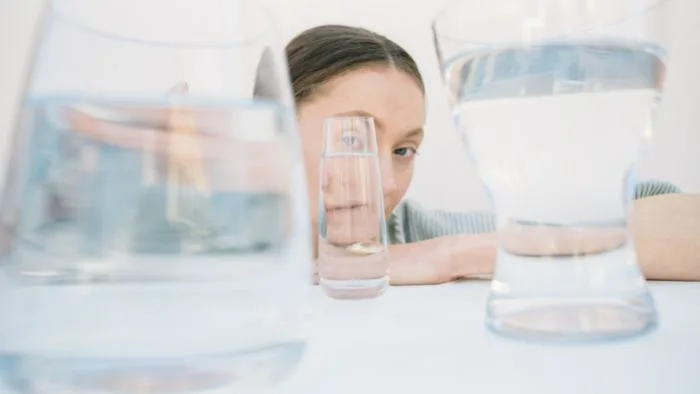
Most people typically pee up to about seven times a day if their bladder can hold urine normally until it is convenient to visit the toilet. Needing to pee more than eight times daily can mean that you are ingesting vast amounts of liquid. However, you might also have an underlying health disease.
1. Water Or Liquid Consumption
High water or liquid consumption can make you pee more often.
You might not take in water every time but find out you’re still urinating. Your body does not only get rid of the water you drink; you get about twenty percent to thirty percent of water from the food you eat and other beverages.
When you ingest food with a high water content, your kidneys can sense it and begin to form urine. This stores up in your bladder and then makes you feel the need to pee. The more food and beverages you consume, the faster your bladder stores pee and the more frequently you will need to pee.
2. Health Conditions
Several health conditions can make you pee more often. The first possible medical condition is an overactive bladder. Being stressed or anxious can lead to an overactive bladder. This is often the most common health condition people experience that causes frequent urination. It is most commonly associated with the need to pee more than eight times daily, waking up during the night to pee more than once, and frequently losing the ability to control the bladder before they can get to the toilet.
Another health issue is diabetes, a condition caused by elevated blood sugar. Diabetes can increase thirst and the need to drink water, causing you to visit the toilet to pee more often.
Thirdly enlarged prostate. This condition can occur in men as early as thirty years old. One of the symptoms accompanying this condition is a slow urinary stream and the inability to completely empty the bladder when they pee.
3. Medication
If you’re on medication, you might find out that you need to pee more often, probably as a side effect of the drug you are taking. For instance, diuretics. The work of a diuretic is to increase urination by increasing the excretion of sodium and water from the body through the kidneys. This is often useful for treating kidney or liver disorders, and you might not experience them any longer when you stop those medications.
Tricyclic antidepressants may also interfere with your bladder health and its ability to fill up and hold up urine, causing leakage and urinary incontinence, where you’re unable to hold up urine until you reach the toilet.
Also, sneezing can cause urinary incontinence for some people. However, this might be as a result of the antihistamine they take to control different allergies. It is essential to see your doctor if you experience any issues with peeing due to the medications prescribed for you.
4. Caffeine And Alcohol
You might find out that you immediately have to pee after drinking alcohol. Drinking alcohol leads to increased urination, more significant amounts of urine than usual being present in the body, and as a result, more frequent trips to the toilet. A single drink of alcohol can create more urine than the same amount of water.
Two factors combine to cause increased urination when you take alcohol; there is a chemical change in the kidney and an increased amount of fluid in the body from the alcoholic beverages.
Frequent peeing is one of the primary issues caused by alcohol consumption due to the chemical changes that the body undergoes when you ingest alcohol.
While those are short-term effects of alcohol consumption, long-term kidney damage can also occur, which can permanently alter the amount of urine produced by the body and the ability of the body to filter harmful substances.
Avoid drinking alcohol by considering non-alcoholic beer: Can You Buy Non Alcoholic Beer Under 21?
Caffeinated drinks will also increase the rate at which you need to urinate.
Read more about caffeinated drinks: How Old Do You Have To Be To Drink GFuel? & How Old Do You Have To Be To Drink Monster?
5. The Weather
Having to pee more often when the weather is cold, especially in the winter, is normal; it is referred to as ‘cold diuresis.’ Your blood vessels naturally constrict when you expose your body to the cold or go from place to place taking part in cold weather activities.
The constriction of blood vessels occurs so that your body can direct blood flow to vital organs to maintain warmth. The kidneys are responsible for creating urine to filter out waste from your blood so that proper constriction can occur.
As a greater volume of blood rushes to your vital organs at a higher rate, your body will need to filter more blood than usual, all due to the cold weather. This process results in you having to pee more often, but don’t worry, it is a perfectly normal process.
6. Pregnancy
You might be wondering, how long does it take to pee after drinking water while pregnant? Frequent urination is part of what you experience when you are pregnant. One of the earliest pregnancy symptoms in women is increased urinary frequency, usually due to the hormones; human chorionic gonadotropin and progesterone.
Another cause of frequent urination in pregnant women is due to the growing uterus placing pressure on the bladder. This tends to reduce in the second semester because the uterus is higher, resulting in less pressure on your bladder. However, you might begin to experience an intense urge to pee again in the third trimester because of the growing size of your fetus, meaning your baby is pressing harder on your bladder.
In addition to increased hormones, the fluid level in your body begins to increase during pregnancy. Your kidneys have to do extra work to flush the excess liquid, increasing the amount of urine your body expels.
How To Make Yourself Pee Fast After Drinking Water
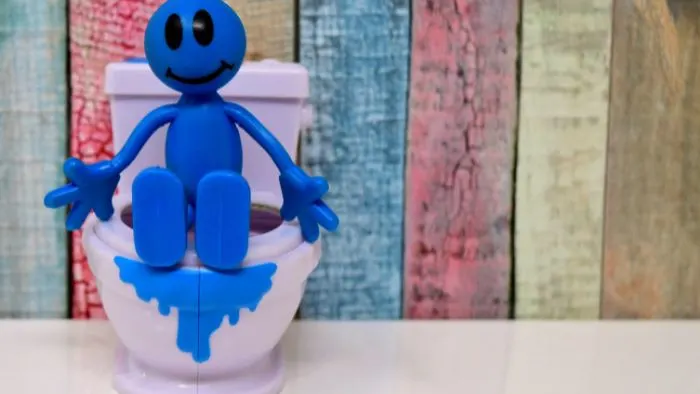
If, for any reason, you need to make yourself pee fast after drinking water, here are some of the ways you can try.
1. Turn on the Tap: Sit on the toilet, turn on the faucet in your sink, and shut your eyes. Also, try to relax and focus on the sound of the water. Trying to focus can stimulate your body and induce the need to pee.
2. Bend forward: Apart from turning on the water faucet and focusing on it, you can relax on your toilet seat and bend forward when you are ready to pee; this might stimulate your bladder.
3. Exercise: Try some physical activity to get your bladder stimulated. Physical activity that you can try includes brisk walking around the hallway or a room until you feel the need to pee.
4. Peppermint oil: Sniff or inhale some peppermint oil. The smell of peppermint oil might urge you to pee. Put a few drops of peppermint oil on a cotton ball and take it along with you to the toilet. While you’re on the toilet seat, relax and sniff the cotton ball. You can also put a few drops of peppermint oil directly into the toilet.
5. Rinse your perineum: The fourth method is to try rinsing your perineum, which is the fleshy area between your anus and your genitals. Try to relax while sitting on the toilet bowl, then rinse your perineum with warm water using a squirt bottle.
6. Subrapubic tap: While sitting on the toilet, you can rapidly tap the area between your navel and pubic bone. The vibration and slight additional pressure could trigger your need to pee.
7. Diuresis effect: Lastly, fill a shallow bowl with very cold water and place your fingertips into the bowl. Hold your fingertips in the bowl until you feel the urge or need to pee. Holding your hand in cold water for a long time can trick your brain into creating the ‘cold diuresis effect’ as explained above.
Drinking A Lot Of Water But Not Peeing
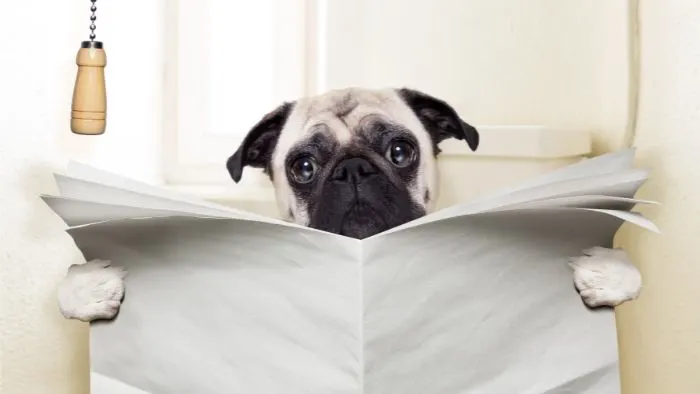
There are several reasons you might be drinking a lot of water but not peeing. Let’s look at some of them.
1. Urinary Tract Blockage: Urinary tract blockage can be one of the reasons you are unable to urinate even when you drink lots of water. Obstruction of the urinary tract is a condition that prevents the urine from leaving the kidney and might end up affecting either one kidney or both kidneys, leading to a decrease in urine output. Other symptoms you might experience with urinary tract blockage include nausea, swelling, vomiting, and fever.
2. Burns And Serious Injuries: When you experience a burn, the burn can lead to dehydration, making you urinate less. A septic shock after surgery or an anaphylactic shock from a very bad allergy can cause less peeing even when you take in a lot of water.
3. Kidney Disease: Another reason you might be drinking lots of water and still not urinating much is kidney disease. The kidney produces less or more urine, depending on the body’s needs. However, if your kidneys are unable to produce urine even after you have ingested a large quantity of water, this can be an indicator that your kidneys are not functioning properly.
4. Infection: A bladder infection can also result in low urine output. The longer urine stays in the bladder, the greater the risk of developing a bladder infection. The Mayo Clinic advises drinking cranberry juice and water to assist with UTIs.
5. Dehydration: Dehydration is the most common cause of low urine output, occurring as a result of your body losing more fluid than you take in. Your kidneys do their utmost best to retain fluids instead of passing them to your bladder when this happens, causing less urination.
How To Stop Peeing So Much When Drinking Water
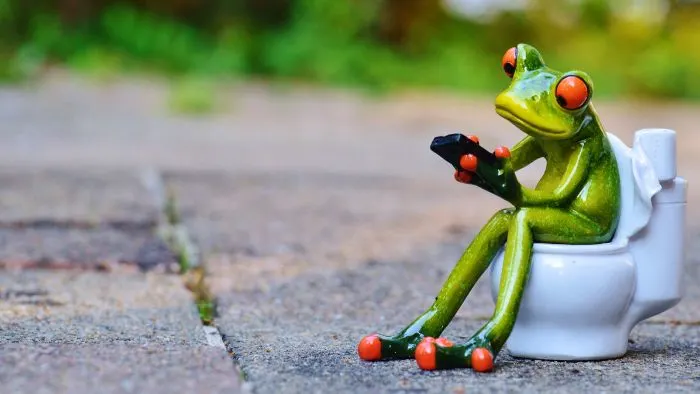
If you find out that you pee so much when drinking water and are worried about it, here is what you can do to help yourself;
1. Eliminate Caffeine: Eliminating Caffeine, alcohol, and nicotine can resume overactive bladder symptoms to a large extent because these three make the bladder irritated. Caffeine acts as a diuretic which means it causes you to urinate more often.
Although doing this might seem hard, you can achieve it by; cutting out the amount of coffee, energy drinks, and teas you drink slowly because they all contain caffeine. Also, try to cut out alcohol and replace it with healthy beverages such as water.
2. Drink Water Wisely: It might seem tricky when you try to control your fluid intake. While you might think cutting back on your liquid will reduce overactive bladder, it can irritate the bladder, resulting in concentrated urine.
When drinking water, sip it slowly throughout the day instead of drinking gulps of water at once. Also, do not carry a large water bottle with you when exercising, as it may cause you to drink more water. If you realize that you wake up too often to pee at night, try to drink less before you sleep.
3. Add some salt to your water: Adding some sea salt to your water allows your body to replace what’s lost through sweat, urine, and other bodily fluids. This means that your body will also store some of the water you drink to keep your bodily fluids properly balanced.
4. Lifestyle Changes: Try consuming more vegetables and fiber. Fiber helps prevent constipation which will help reduce the pressure on your bladder. Avoid tense situations as they can urge you to pee. When in a tense situation, try breathing exercises to help you ease tension. Also, try maintaining a healthy weight as it helps reduce the pressure on your bladder.
5. Medication: If you take antidiuretics as part of your medication, try taking them during the daytime instead so you can empty your bladder before you sleep.
6. Train your bladder to pee less: Doctor Nicole shares some great tips in the video below on how to pee less.
When To Stop Drinking Water To Avoid Peeing At Night
Drinking water too close to bedtime can lead to peeing at night. Ensure you stop water intake at least two to four hours before bedtime. A study has shown that short fluid intake hours to bedtime will help prevent peeing. Also, try to limit your caffeine and alcohol intake, which are diuretics.
Related Questions
Is it safe to hold your pee?
Holding your pee now and then is not harmful to your health but can increase the risk of urinary tract infections or other complications.
Is peeing 20 times a day normal?
The typical amount of time to pee is seven to eight times daily for most people. Urinating up to twenty times a day can be as a result of health issues.
Is urinating every hour normal?
An average person should urinate between six and eight times within a twenty-four-hour period, meaning about once in three hours. Experiencing too frequent urination might mean you need to visit a doctor.
When should I worry about frequent urination?
You should worry about frequent urination if there is no apparent cause, such as taking alcohol, caffeine, or any medication. Make an appointment with your doctor if you’re urinating more than usual.
Final Thoughts On How Long Does It Take To Pee After Drinking Water
After you drink water, it takes only a little while for your body to absorb it. Unlike food, you can digest water quickly. Excess water leaves your body through feces, sweating, and urination.
You might need to pee in about ten to twenty minutes after drinking water if your bladder is full, one to two hours if your bladder is empty, and it can take 9-10 hours for your bladder to produce 2 cups of urine.
Several conditions such as medications, alcohol intake, and pregnancy can cause you to pee frequently. If you feel the urge to pee too frequently and more than the average of seven times daily, you should consult your doctor.
The connection between drinking water and the time it takes to pee is influenced by a variety of factors. The temperature, both in the environment and of the liquid intake, can affect urine production. For example, in hot temperatures or hot weather, the body might require extra water to maintain proper hydration.
Kidney stones, kidney infections, and other kidney issues, such as kidney failure, can alter urination patterns. Drinking plenty of fluids, especially water, is essential for urinary health as it aids the kidneys in the process of filtration and removal of waste and excess fluid. However, the intake should be balanced, as water intoxication can occur if too much is consumed in a short period.
Your body weight and activity level play a significant role in determining how much water per day is needed for adequate hydration. Generally, an average person should aim to drink ounces of water equal to half their body weight in pounds. Additionally, the body needs sufficient water to maintain normal levels of blood pressure and kidney circulation.
The bladder muscles and pelvic muscles are also involved in the process of urination. Average bladder size varies, but bladder control can be improved through pelvic floor exercises such as Kegel exercises. Maintaining a bladder control log can be a helpful strategy to monitor peeing habits and identify any signs of an overactive bladder or other bladder issues, like bladder stones or bladder spasms.
The type of beverages consumed also matters. While drinking fluids like unsweetened fruit juices and water contributes to proper hydration, caffeinated beverages, soft drinks, and sports drinks might increase the frequency of urination. Carbonated drinks can cause bloating, which can affect bladder control. Salty foods and spicy foods may cause you to drink more water, and they can also affect the digestive tract and the urinary system.
Furthermore, the urine formation process within the kidneys is vital in this context. It is a normal function for urine per day to range between 800-2000 milliliters, depending on liquid intake and other factors. However, if you notice disordered urination patterns such as painful urination, bloody urine, or excessive urination, this could be indicative of an underlying health condition such as diabetes insipidus, diabetes mellitus, prostatic hyperplasia, or a urinary tract structural issue.
People with different body temperatures, taller people, and those consuming different food varieties might have different amounts of water needed for proper hydration.
Ultimately, it is essential to focus on consuming a healthy amount of water and other fluids in a 24-hour period without compromising the bladder and kidney’s normal functioning. This may be measured in cups or ounces per hour.
If there are frequent urges, daytime wetting, or any unusual changes in your peeing habits or urine color, it is wise to consult a medical professional. Maintaining a balance, being aware of the body’s needs and signs of dehydration or severe dehydration like feeling thirsty, and adapting to them is key for optimal health and wellness.
